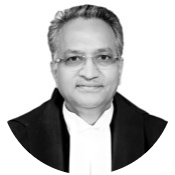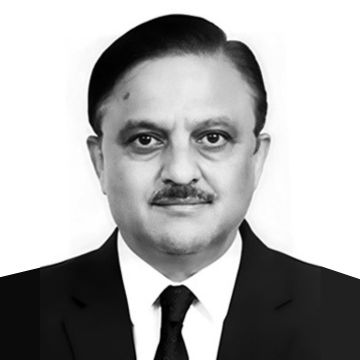Transfer of IT Rules Challenges
Union of India v Sudesh Kumar Singh
The Supreme Court will hear the Union Government's petition requesting a transfer of pending High Court challenges to the IT Rules, 2021
Pending
Parties
Petitioner: Union of India
Lawyers: Tushar Mehta
Case Details
Case Number: TP (C) 100-105/2021
Next Hearing:
Last Updated: May 27, 2022
Key Issues
Should the Supreme Court accept the Transfer Petition filed by the Union Government?
Case Description
On February 25th, 2021, the Union Government notified the controversial Information Technology (Intermediary Guidelines and Digital Media Ethics Code) Rules, 2021 (IT Rules). They were notified under the Information Technology Act, 2000 (IT Act) and replaced a previous set of rules notified under the IT Act in 2011. The Ministry of Electronics and Information Technology (MeitY) has stated that the rules are to provide internet users with grievance redressal mechanisms, and to ensure the accountability of social media and digital media platforms.
The IT Rules contain two sets of guidelines—the first applies to ‘social media intermediaries’ (such as Facebook and Twitter) and the second to digital media organisations and online streaming platforms (OTT platforms).
The first set of guidelines mandate that intermediaries must observe ‘due diligence’ while discharging their duties, detailing a comprehensive set of safeguards in order to do so. Intermediaries are further saddled with an intensive grievance redressal mechanism and must publicly disclose how they’ve handled complaints from users of their platform. In cases of serious offences, intermediaries are required to share information about ‘objectionable’ messages from those users under suspicion. Intermediaries that fail to comply with the guidelines would fall afoul of the ‘safe harbor’ protections guaranteed under the IT Act—rendering them equally responsible for any objectionable content published on their platforms by users.
The second set of guidelines imposes a ‘code of ethics’ on digital news media and OTT platforms. For news publishers, the code mandates that they follow the norms of journalistic conduct formulated by the Press Council of India, as well as the programme code under the Cable Television Networks Regulation Act, 1995.
The IT Rules also create a committee—comprising Union Ministers—which may send recommendations to the MeitY if they believe action should be taken against a digital media organisation for non-compliance with the rules. Further, the rules create the station of an ‘Authorised Officer’ who may ‘block’ digital content in the case of ‘emergency nature’. This decision may be reversed by the Ministry of Information and Broadcasting.
These rules have been challenged by digital media platforms and intermediaries across various High Courts. Those challenging the guidelines for digital news media and OTT platforms claim that they impose vague and arbitrary restrictions on media freedom. They further argue that the IT Rules grant powers to the Executive beyond that which was envisioned by the IT Act.
The Bombay, Madras, and Kerala High Courts have already passed Interim Orders staying the application of the rules and barring the government from taking any action against digital media organisations and OTT platforms for non-compliance.
The Union Government filed a transfer petition in July 2021, requesting the Supreme Court to weigh in on the matter and stay all pending HC proceedings. The petition asks the Court to transfer four cases—three from the Delhi High Court (filed by Foundation for Independent Journalists, the digital news media platform The Quint, and lawyer Sanjay Kumar Singh) and one from the Kerala High Court (filed by the digital news media platform LiveLaw). It argues that verdicts from multiple High Courts on the same subject matter may result in conflicting decisions—requiring the SC to weigh in to avoid ‘divergent judicial views’.
A Bench comprising Justices A.M. Khanwilkar and A.S. Oka issued notice in the Transfer Petition on May 9th, 2022, but refused to stay the Interim Orders that the High Courts had already passed.
The Union Government filed a separate petition challenging these Interim Orders, which was heard by the same Bench on May 19th, 2022, with the addition of the recently elevated Justice J.S Pardiwala. The hearings for the challenges to the Interim Orders have been scheduled for July 19th, 2022, after the SC’s summer vacation.


